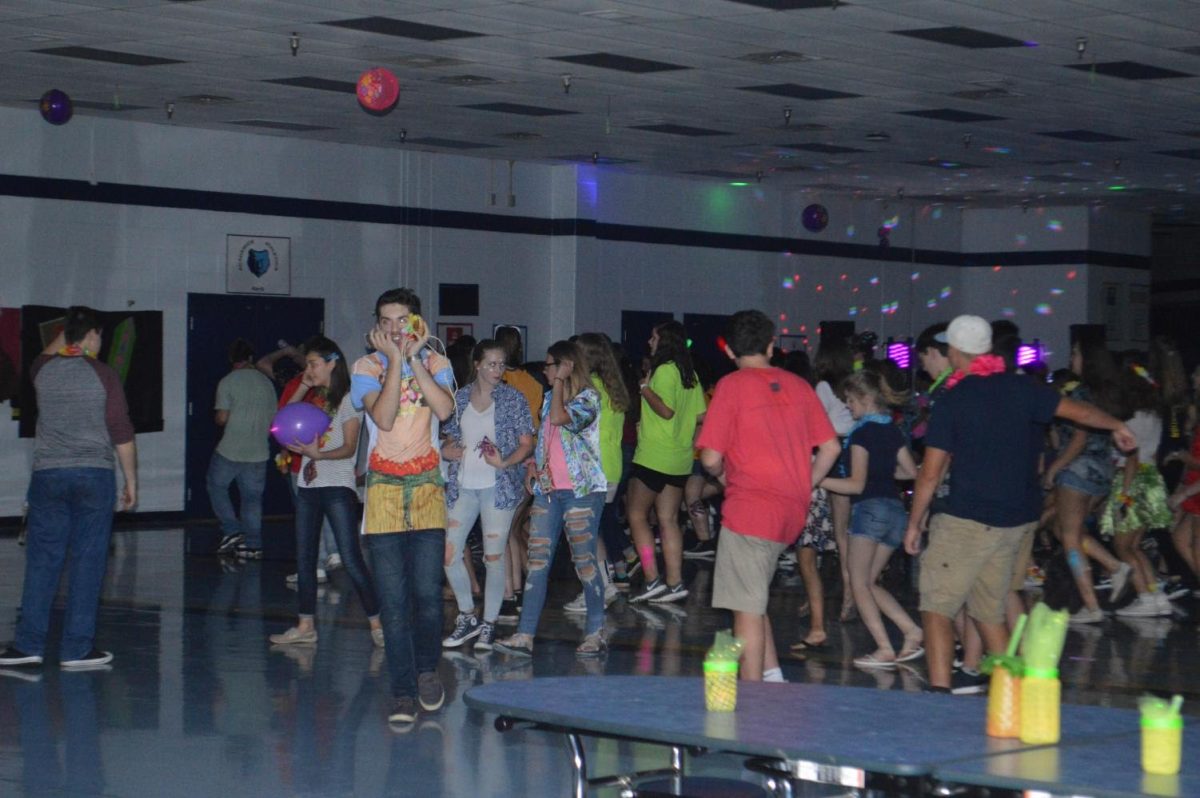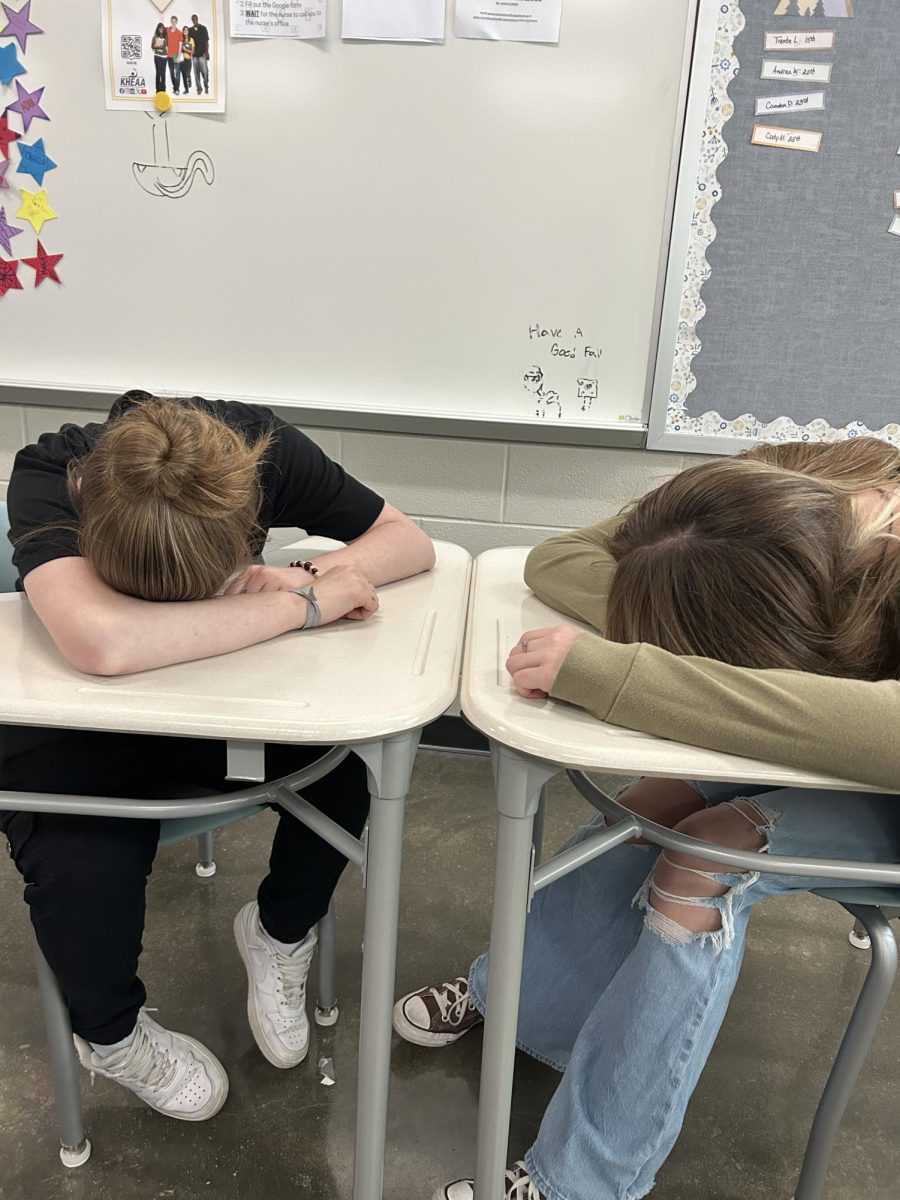A Teen’s World: Happiness
The Highs, Lows, and Plateaus of Being Happy
February 16, 2022
Happiness. What is it? We all know the word, and I think we can all say that we know the feeling, but let’s take a step back and look at it as less of a definition and more of a construct. According to psychology researcher Sonja Lyubomirsky, happiness is the “experience of joy, contentment, or positive well-being, combined with a sense that one’s life is good, meaningful, and worthwhile.” Wow, quite the definition. According to the National Association for Gifted Children, “Happiness is what you feel when you experience congruence, or when you can say to yourself, ‘I feel good about who I am, what I do, who is in my life, and how I exist in the world.’” You might be thinking that this is all sounding rather…complex. Well, in reality, happiness can be pretty complex. Achieving deeply rooted and grounded happiness within ourselves is something that for most people, doesn’t come easy, but that doesn’t mean it is not achievable or important. Everyone deserves to be happy; it is ultimately what unlocks our true spirit and purpose as human beings.
I don’t know about you, but in the last few months, I just haven’t been very happy. I haven’t been happy with school, my family, my habits, but most of all, I haven’t been happy with myself. I feel a little disappointed in how my life has played out as I entered the winter season. A common term for this is “seasonal depression,” but these emotions I am feeling are more than just a phrase and should definitely not become a normality for anyone.
During this difficult time, there have been a variety of people close to me who have noticed a change in my personality and emotional state. I have always been told to fake it until you make it with this kind of thing, but there comes a point where everything boils over and you can no longer mask the truth. I think that in this moment, what I really needed was to step back and take some time to purely and solely work on healing the relationship I have with myself. I needed to release the stresses and obligations that surrounded me and reintroduce things that fed my soul and inner child. Essentially, going back to the basics of living.
However, I unfortunately did not take the full measures to help myself reset. I kept pushing and pushing myself day after day, which only deepened this unhappiness. I know that I am not the only one who chose to do so. People, specifically teenagers, all across the globe have been experiencing similar situations. From the most socially active 16-year-old cheerleader to the quiet, studious 13-year-old boy, this wave of emotions can affect anyone and everyone.
“Even if you are ambitious, you will not be able to achieve your ambitions because you are psychologically totally defeated.” – An adolescent girl in Egypt
Whilst experiencing this world wide pandemic, the lives of teenagers and everyone across our world are forever changed. This is no one’s fault, but it simply is something we must come to accept. So many of us were forced into isolation for extensive amounts of time, and when allowed to re-enter a society vastly different from what we had previously known, our brains’ expectations were thrown for a loop. We had to relearn social grace with the obstacle of masks, and forming or rekindling connections proved to be more difficult than before. For some, this process went relatively smoothly and they were able to pick up where they had left off in their lives, but for most, the road was long and bumpy to finding contentment in our days on this planet.
As you know, school is a leading commonality in nearly every teenager’s life these days. Whether it be through the glowing screen of a computer or sitting at a desk surrounded by peers, education stops for no emotion or mental challenge. In the classroom, we are taught to persevere through rough patches and physical uncomfortability. If we have a headache, take some deep breaths and a sip of water, maybe a Tylenol if the nurse says it’s okay. If we start crying, we are told to clean up in the restroom or step outside in the hall. Maybe this works for some people, but nearly everyone I know finds these solutions oftentimes only making the issue at hand worse. Being called out in front of everyone in the room when you are in a vulnerable state is embarrassing. Sure, maybe the teacher wanted you to feel seen, but instead you feel judged. When this cycle continuously transpires over and over again, something has to shift, and that shift has failed to occur in the school.
Personally, I have had to step away from a classroom environment to reset and gather myself, sometimes for many days at a time. Mental and emotional conditions affect those who have them in more ways than one. When struggling, you feel hypersensitive to things like loud noises or the words of others. The smallest little events that would normally pass right by your conscience can set you into a downward spiral of panic. It’s easy to become overwhelmed by the thoughts of what most people would call “normal” activities in everyday life. When you wake up with your heart racing or are overcome with sadness, having a shower, getting dressed, and going to school for seven hours is one heck of a mountain to climb. You convince yourself it is impossible, that you simply cannot do it, so you don’t, or if you do, you break down during the process of it all.
“With stress and mental illness, for many it’s a very anxious subject. And you don’t really want to talk about it.” – An adolescent girl in Sweden
As children and teens, we are constantly told by teachers and administrators that there are places and people we can always talk to about these topics. Advice and questionnaires are dished out like homework, seemingly trying to help us better understand what is happening within our minds. I believe their intent is pure, for they may have no other solution or assistance to offer. Yet, I can’t help but feel that these methods are only an easy-fix. I don’t want to be fixed. I don’t want to rate my emotions on a 1-5 scale. These open doors they speak of seem to be hidden down paths that students don’t feel comfortable venturing down. Whether it be that the person you would be sent to talk to is someone you don’t trust or particularly like, or you are afraid of those around you finding out that you are seeking help, these outlets of counseling and support aren’t effective.
Globally, about two percent of government health budgets are allocated to mental health spending, less than $1 per person in some of the poorest countries. These figures fall far short of treating mental health conditions, especially of those facing some of the greatest mental health challenges, and promoting a more positive trend in these levels.
I think everyone can agree that through our own ups and downs, the striving end goal was always happiness. We all want to be happy, you, me, and everyone across the globe. And furthermore, I think that we all want those we love to be happy as well. One mother said this when speaking about her own child’s wellbeing:
“More than anything in the world, I want her to be at peace with herself; to know she is worthy of love.”
When it comes to mental health, instead of focusing on conditions to be diagnosed and medicated or simply shoved into the hallway or home to be handled, it needs to be understood as a continuum. At any and all stages of our lives, we may experience varying degrees of it. We may enjoy life but also have periods of distress, and some may suffer long-term and disabling mental health conditions.
Rather than turning a blind eye to these topics that literally everyone can relate to, we need to uplift one another in our own battles. We need to normalize talking about our emotions, no matter how uncomfortable or alien it may feel at first, especially in an essential teenage environment like high school. Being alone when you’re stuck in a dark place may seem like the only comfort in the moment, but ultimately, it will be others’ kindness and faith towards your happiness that will bring you back to reality.
“The most precious gift we can offer others is our presence. When mindfulness embraces those we love, they will bloom like flowers.” – Thich Nhat Hanh
So as you continue on with your day after reading this article, I merely encourage you to take a deep breath and consider, “what makes me happy?” Think of the people you love, their smiles, maybe your pets, and furthermore, recognize the feelings that you’re feeling as you think of them. Relish in that sense of contentment. Realize that there will be points in your life where you will no longer feel this way, and that people around you may not be feeling that same contentment. The world around us, specifically in schools, isn’t quite suited to uplift us and our needs, but that doesn’t mean there isn’t hope. If there comes a time when you find yourself at an emotional low point, know you are not alone. As long as we have each other, we will be okay. We will find happiness.
As the wise and willful Albus Dumbledore once said, “Happiness can be found, even in the darkest of times, if one only remembers to turn on the light.”


















Ms. Gibson • Feb 17, 2022 at 9:20 am
Thank you for putting into words what so many students here are feeling. This was an excellent piece!